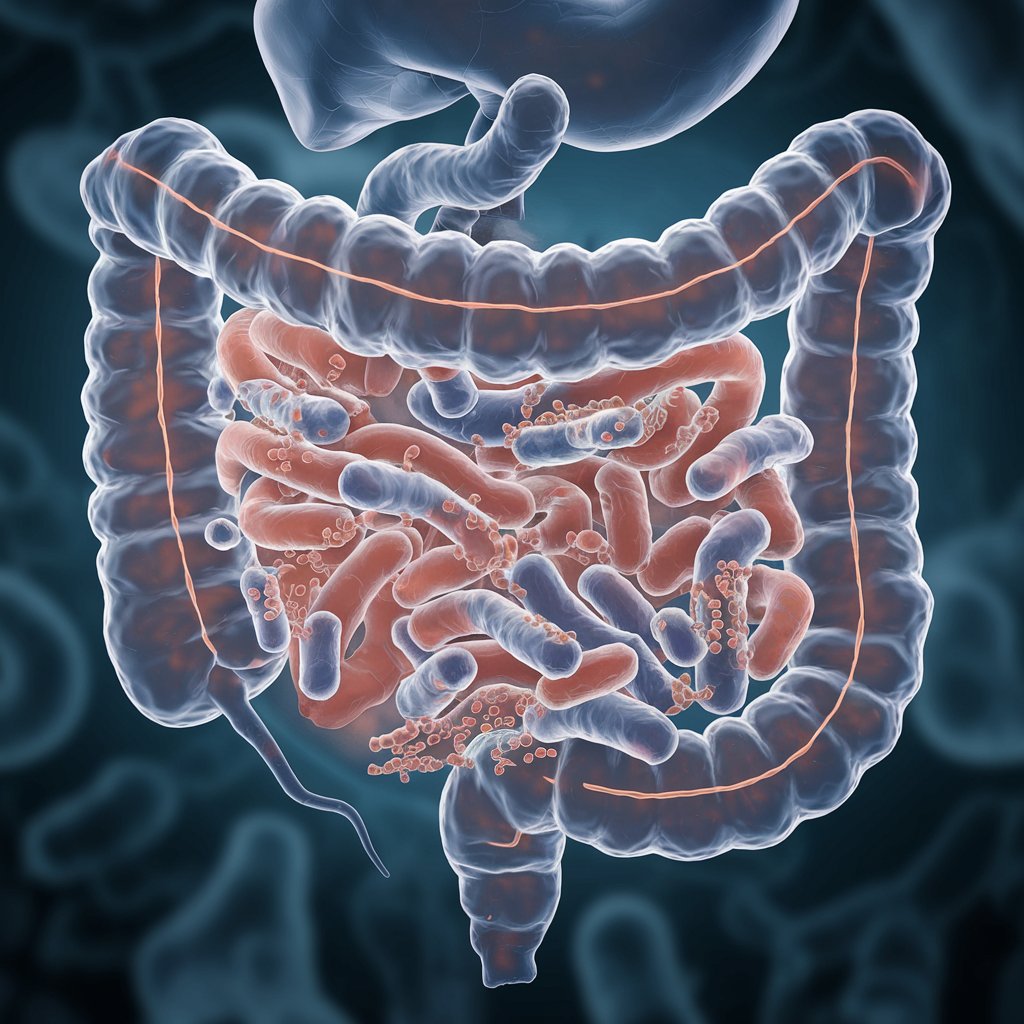Definition of the Gut Microbiome
The gut microbiome refers to the vast community of trillions of microorganisms, including bacteria, viruses, fungi, and other microbes, that reside in our gastrointestinal tract. These microorganisms coexist in a symbiotic relationship, playing a crucial role in maintaining overall health. The majority of these microbes live in the colon, where they perform essential functions such as digesting food, synthesizing vitamins, and protecting against harmful pathogens. The term “microbiome” is often used to describe not only the microorganisms themselves but also their genetic material and interactions with the human host.
Composition of the Gut Microbiome
The gut microbiome is a diverse ecosystem comprising:
- Bacteria: The dominant microorganisms, including beneficial strains like Lactobacillus and Bifidobacterium, as well as potentially harmful ones such as Clostridium difficile.
- Viruses: Including bacteriophages that regulate bacterial populations. These viruses play a critical role in maintaining microbial balance and preventing the overgrowth of harmful bacteria.
- Fungi and Yeasts: Such as Candida, which are typically harmless unless imbalanced, where they may contribute to infections or other health issues.
- Archaea and Protozoa: These microorganisms, while less common, influence processes like methane production in the gut, affecting digestion and gas regulation.
Individuality of the Gut Microbiome
Every individual has a unique gut microbiome, influenced by genetics, diet, lifestyle, and environmental factors. This individuality means that gut health varies from person to person. For instance, identical twins may share a significant portion of their microbiome composition, but differences still exist based on their unique experiences and environments. Such variability underscores the importance of personalized approaches to maintaining gut health.
Why is the Gut Microbiome Essential for Health?
Role in Digestion and Nutrient Absorption
The gut microbiome is a cornerstone of the digestive process, helping break down complex carbohydrates, fiber, and proteins into smaller, absorbable molecules. Many plant-based fibers that are indigestible by human enzymes are fermented by gut bacteria, producing short-chain fatty acids (SCFAs) like acetate, propionate, and butyrate. These SCFAs provide energy for colon cells, reduce inflammation, and strengthen the gut lining. For instance, butyrate plays a vital role in preventing conditions like leaky gut syndrome by enhancing intestinal barrier function.
Production of Essential Nutrients
Certain gut bacteria synthesize vitamins and other bioactive compounds that are essential for human health. These include:
- Vitamin K: Produced by gut bacteria, this vitamin is essential for blood clotting and bone health.
- B Vitamins: Gut microbes like Bifidobacterium and Lactobacillus produce biotin, folate, and B12, all crucial for energy production and brain function.
- Amino Acids: Some bacteria produce amino acids, which are building blocks for protein synthesis.
Supporting Immune System Function
Approximately 70% of the immune system resides in the gut. The gut microbiome acts as a “training ground” for immune cells, teaching them to differentiate between harmful pathogens and harmless substances. For example:
- Pathogen Defense: Beneficial bacteria produce antimicrobial peptides and compete with harmful microbes for resources, reducing the risk of infections.
- Gut Barrier Maintenance: By maintaining the integrity of the gut lining, the microbiome prevents harmful substances like endotoxins from entering the bloodstream.
- Regulatory Signals: Certain bacteria secrete metabolites that modulate immune responses, promoting tolerance and reducing inflammation.
Preventing Chronic Inflammation
An imbalanced gut microbiome, or dysbiosis, can trigger chronic inflammation, which has been linked to conditions like obesity, diabetes, and cardiovascular disease. Conversely, a balanced microbiome promotes anti-inflammatory processes. For instance, SCFAs produced by microbial fermentation inhibit inflammatory pathways and encourage the production of regulatory immune cells.
The Gut-Brain Connection
Communication Between the Gut and Brain
The gut and brain communicate bidirectionally through the gut-brain axis, which involves:
- Vagus Nerve: A major nerve that directly connects the gut and brain, transmitting signals about gut health.
- Hormones and Neurotransmitters: Gut microbes influence the production of neurotransmitters like serotonin, dopamine, and GABA. Remarkably, 90% of the body’s serotonin is produced in the gut.
- Immune Signals: Inflammatory markers generated in the gut can impact brain function and mood.
Impact on Mental Health
Studies suggest a strong link between gut health and mental health. Dysbiosis has been associated with:
- Anxiety and Depression: An imbalanced microbiome can increase stress hormones and inflammatory markers, contributing to mental health issues.
- Cognitive Function: Emerging research indicates that a healthy microbiome may enhance memory and learning by influencing brain plasticity.
- Neurodegenerative Disorders: Dysbiosis may play a role in conditions like Alzheimer’s and Parkinson’s disease by promoting systemic inflammation and neuroinflammation.
Role of Probiotics in Mental Health
Probiotics—live beneficial bacteria—may improve mental health by restoring microbial balance and enhancing the gut-brain connection. Clinical trials have shown promising results, with certain probiotic strains reducing symptoms of anxiety and depression.
Factors That Influence Gut Microbiome Health
Diet and Nutrition
Diet is the primary factor shaping the gut microbiome. A diverse, plant-rich diet supports a healthy microbiome by providing various nutrients and fibers that beneficial microbes thrive on. Conversely, diets high in processed foods, sugar, and unhealthy fats can promote the growth of harmful bacteria and reduce microbial diversity.
Fermented Foods
Fermented foods like yogurt, kimchi, and kombucha introduce live probiotics to the gut, enhancing microbial diversity and function. Regular consumption of these foods has been linked to improved digestion and immune responses.
Lifestyle Factors
Lifestyle Factors
Other factors influencing the gut microbiome include:
- Exercise: Promotes microbial diversity.
- Stress: Chronic stress negatively impacts gut health.
- Sleep: Poor sleep disrupts microbiome balance.
Medications and Antibiotics
While antibiotics are essential for treating infections, they can disrupt the microbiome by killing beneficial bacteria. Recovery often requires dietary adjustments or probiotic supplementation. Non-antibiotic medications like proton pump inhibitors and NSAIDs can also impact microbial balance.
Consequences of an Imbalanced Microbiome
Dysbiosis and Its Impacts
Dysbiosis—an imbalance in the gut microbiome—can lead to:
- Digestive issues like bloating, diarrhea, and constipation.
- Metabolic disorders such as obesity and insulin resistance.
- Autoimmune diseases, where the immune system attacks the body’s own tissues.
Long-Term Health Risks
An unhealthy gut microbiome has been linked to serious conditions, including:
- Cardiovascular Disease: Through elevated levels of trimethylamine N-oxide (TMAO), a microbial metabolite.
- Cancer: Particularly colorectal cancer.
- Neurological Disorders: Such as Parkinson’s disease.
How to Support a Healthy Gut Microbiome
Dietary Recommendations
Include Prebiotic Foods
Prebiotics are non-digestible fibers that nourish beneficial bacteria. Examples include:
- Garlic
- Onions
- Bananas
- Asparagus
Consume Probiotic-Rich Foods
Probiotics introduce beneficial bacteria into the gut. Foods like yogurt, kefir, sauerkraut, and kimchi are excellent sources.
Limit Processed Foods
Highly processed foods, artificial sweeteners, and excessive alcohol can disrupt the microbiome. Opt for whole, nutrient-dense foods instead.
Lifestyle Changes
Manage Stress
Practice stress-reducing techniques such as meditation, yoga, and deep breathing exercises.
Prioritize Sleep
Aim for 7-9 hours of quality sleep per night to support a balanced microbiome.
Stay Physically Active
Regular exercise has been shown to enhance microbial diversity and gut health.
Future Directions in Gut Microbiome Research
Personalized Medicine
Advances in microbiome research are paving the way for personalized interventions, such as tailored probiotics and dietary recommendations based on an individual’s microbiome composition.
Microbiome-Based Therapies
Emerging therapies, including fecal microbiota transplantation (FMT), show promise in treating conditions like inflammatory bowel disease (IBD) and Clostridioides difficile infections.
Role in Precision Nutrition
Understanding the gut microbiome may enable precise dietary strategies to prevent and manage chronic diseases.
Conclusion
The gut microbiome is a cornerstone of human health, influencing digestion, immunity, mental well-being, and more. Maintaining a balanced microbiome through a nutritious diet, healthy lifestyle, and mindful use of medications is essential for long-term health. As research continues to unveil the complexities of the microbiome, it holds the potential to revolutionize healthcare and personalized medicine.



